What To Know: Expanding E-Verify Requirements
 By: Sarah Michael, Florida State University student
By: Sarah Michael, Florida State University student
St. Petersburg Chamber Intern 2023
How does E-Verify work?
- “E-Verify is an internet-based system that compares information from your Form I-9 and Employment Eligibility Verification to records available to the U.S. Department of Homeland Security and Social Security Administration to confirm that you are authorized to work in the United States.”
- If the information listed above matches, then the employee's case will receive an “Employment Authorized” result in E-Verify.
- However, if the information has any discrepancies, the case will receive a “Tentative Nonconfirmation” (Mismatch) result.
- The employee will then be given a span of 10 federal working days to resolve the mismatch.
- If the employee chooses not (or is unable) to take action against the mismatch, the employer may terminate employment with no civil or criminal liability as noted in “Responsibilities of the Employer,” Article II, Section A paragraph 13 of the MOU.
Who does the 2023 Florida Immigration Law directly affect?
- All private employers with at least 25 employees are obligated to register their employees with E-Verify, as well as create E-Verify cases for all employees hired on or after July 1, 2023.
- Employers are given three business days from the date of hire of their employee to comply.
- If a noncompliance notice is received from the Department of Economic Opportunity, the employer has 30 days to submit sufficient proof to cure the noncompliance.
- Beginning July 1, 2024, businesses that knowingly employ unauthorized workers or fail to comply will be subject to penalties- including the imposition of a daily fine of $1,000, requiring an employer to report quarterly during a probationary period, and suspending or even revoking employer licenses- depending on the duration of the violation.
How might this affect businesses and workers?
- Small, family-owned businesses may not have the resources to meet the demands of an electronic verification system.
- Because most such businesses often do not have staff dedicated exclusively to personnel matters, they may have to divert scant management time to E-Verify’s training requirements and to track verification records.
- Additionally, many small businesses such as farms and other agricultural enterprises may not have the high-speed Internet access which E-Verify requires.
- It is estimated that approximately 75,000 to 215,000 citizens and authorized immigrant workers in Florida would have to correct their records in order to avoid being fired following a Tentative Nonconfirmation during the hiring process.
- There have been statewide protests from small businesses who have voluntarily closed their doors in solidarity, as well as businesses who have involuntarily closed their doors due to staffing shortages.
- Truck drivers have begun organizing boycotts, which call for a halt of deliveries to and from the state of Florida.
- Once E-Verify was mandated in Alabama in 2011, a government-commissioned study found that 49.5 percent of workers lost partial or complete days of work in an attempt to correct their information upon a “Tentative Mismatch” result.
- Authorized foreign-born workers have encountered an E-Verify error rate 20 times greater than that faced by U.S.-born employees, the American Immigration Council reports.
How might this legislation affect Florida’s economy?
- Florida Policy Institute estimates a $12.6 billion drop in Florida’s GDP in one year.
- According to the U.S. Chamber of Commerce, Florida is already experiencing a massive labor shortage. Requiring employers to participate in E-Verify may discourage Florida’s hiring in an already unstable market, polluted by layoffs.
What effects have already been seen by other states that mandated E-Verify?
- Arizona managed a 73.6 percent compliance rate, while Mississippi only saw a 41.7 percent compliance rate.
- Employers and employees began sidestepping the law.
- Some big companies have simply reorganized their workforce into sub-groups of fewer than 25 workers.
- Since the site simply approves documents without verifying who they belong to, there have been incentivized identity theft and identity loans.
- Workers were moving towards the underground economy. This shift deprived the state of income-tax revenue- leaving Arizona with a $1.2 billion budget gap.
What are the next steps for Florida businesses?
- Employers should:
- Review procedures to ensure compliance with Senate Bill 1718.
- Set time aside to navigate the system. - https://www.e-verify.gov/employers/enrolling-in-e-verify
- Enroll all new hires in E-Verify beginning July 1, 2023.
- ATTEND THE ST. PETE CHAMBER E-VERIFY WEBINAR - July 12 at 12pm
- Listen and ask questions as legal experts from Stearns Weaver Miller discuss SB 1718
- Click here to register and learn more
References:
- https://www.uscis.gov/i-9-central/complete-correct-form-i-9/completing-section-2-employer-review-and-attestation#:~:text=Employers%20must%20complete%20and%20sign,by%20Thursday%20of%20that%20week.
- https://www.e-verify.gov/employers/verification-process/tentative-nonconfirmations-mismatches#:~:text=Generally%2C%20if%20the%20information%20matches,action%20to%20resolve%20the%20mismatch.
- https://www.nilc.org/wp-content/uploads/2015/12/FL-everify-facts-2013_final.pdf
